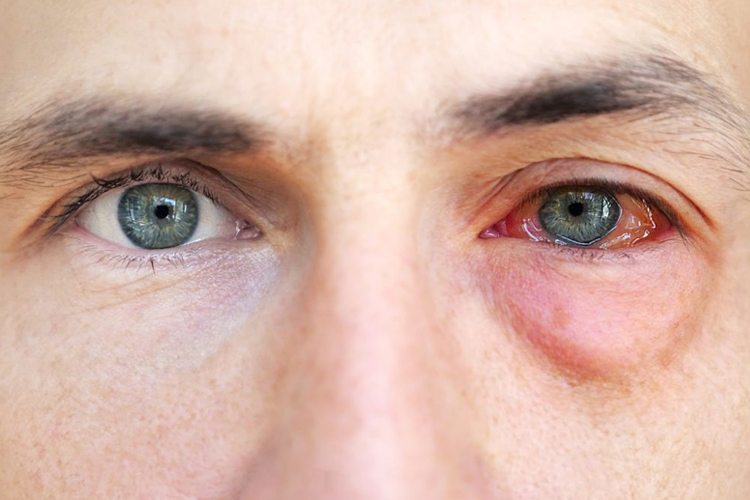Ocular itching is a common yet distressing condition that affects individuals of all ages. Characterized by an irresistible urge to rub the eyes, this symptom can stem from a variety of underlying causes ranging from allergic reactions to chronic eye disorders. Addressing ocular itching effectively requires a comprehensive understanding of its etiology, presentation, and therapeutic options.

Primary Causes of Ocular Itching
Allergic Conjunctivitis: The Leading Cause
Allergic conjunctivitis is the most prevalent cause of itchy eyes. It occurs when the conjunctiva reacts to allergens such as:
- Pollen (seasonal allergic conjunctivitis)
- Pet dander and dust mites
- Mold spores
- Cosmetics or preservatives in eye drops
Histamine release triggers redness, swelling, tearing, and intense itching.
Dry Eye Syndrome
A deficiency in tear film quality or quantity can cause dry eye syndrome, resulting in ocular surface irritation. The lack of adequate lubrication leads to inflammation and an itching sensation.
Contact Lens Use
Prolonged or improper contact lens use may induce mechanical irritation or promote allergic reactions to lens cleaning solutions, leading to itching and discomfort.
Blepharitis
Blepharitis, a chronic inflammation of the eyelid margins, often coexists with ocular itching. It is caused by bacterial overgrowth, meibomian gland dysfunction, or seborrheic dermatitis.
Eye Infections
Although less common, viral or bacterial conjunctivitis can present with ocular itching, particularly during the early stages before purulent discharge becomes dominant.
Key Symptoms Associated with Itchy Eyes
Ocular itching rarely occurs in isolation. It is typically accompanied by additional symptoms, including:
- Redness and swelling of the conjunctiva
- Tearing or watery discharge
- Burning or gritty sensation
- Crusting of eyelids (especially in blepharitis)
- Photophobia (light sensitivity)
- Frequent blinking or eye rubbing
The presence and combination of these symptoms help narrow down the cause.
Diagnostic Process for Ocular Itching
Clinical History and Examination
A thorough patient history helps identify allergens, exposure to irritants, or systemic conditions. An ophthalmic examination includes:
- Slit-lamp biomicroscopy to examine the conjunctiva and cornea
- Eversion of eyelids to detect papillary hypertrophy
- Fluorescein staining to assess corneal integrity and tear film
- Skin or blood allergy tests in persistent or severe allergic cases
Treatment Options for Ocular Itching
Antihistamine and Mast Cell Stabilizer Eye Drops
Topical antihistamines (e.g., olopatadine, ketotifen) offer rapid relief by blocking histamine receptors. Dual-action agents that also stabilize mast cells provide prolonged protection.
Artificial Tears
Preservative-free artificial tears dilute allergens and provide moisture to reduce irritation. They are particularly beneficial for dry eye-induced itching.
Cold Compresses
Applying a cold compress to closed eyelids reduces histamine-driven inflammation and provides immediate relief.
Eyelid Hygiene and Warm Compresses
For blepharitis-related itching, maintaining eyelid hygiene with gentle scrubs and applying warm compresses helps remove debris and stimulate gland function.
Avoidance of Allergens
Identifying and minimizing allergen exposure is critical:
- Use HEPA filters indoors
- Keep windows closed during high pollen seasons
- Replace makeup and avoid sharing eye cosmetics
Prescription Medications
For moderate to severe cases, topical corticosteroids may be prescribed for short-term use under supervision. Oral antihistamines may also be effective in systemic allergic reactions.
Preventive Measures for Recurrent Ocular Itching
Optimize Indoor Air Quality
- Maintain humidity levels between 30–50%
- Use air purifiers to reduce airborne allergens
- Avoid smoking or secondhand smoke exposure
Improve Digital Eye Habits
- Follow the 20-20-20 rule for screen use
- Blink consciously to maintain tear film
- Use lubricating drops while working on screens
Nutrition and Hydration
- Omega-3 fatty acids support tear production
- Stay hydrated to promote mucous membrane function
- Avoid excessive caffeine and alcohol, which may dry the eyes
Ocular Itching in Children and the Elderly
Pediatric Considerations
Children with atopic tendencies are more prone to allergic conjunctivitis. Watch for:
- Constant eye rubbing
- Red eyes with watery discharge
- Disruption in sleep or school activities
Prompt pediatric evaluation ensures appropriate treatment and avoids vision-threatening complications.
Elderly Populations
In older adults, ocular itching is often due to dry eye disease or medication side effects. Tear production naturally declines with age, necessitating artificial lubrication and systemic medication review.
Potential Complications of Untreated Ocular Itching
Chronic rubbing and inflammation can lead to:
- Corneal damage or abrasions
- Keratoconus from habitual eye rubbing
- Secondary infections
- Vision impairment due to scarring
- Reduced quality of life from persistent discomfort
Frequently Asked Questions:
Q1: What is the fastest way to relieve itchy eyes?
Apply a cold compress and use over-the-counter antihistamine drops for immediate relief.
Q2: Are itchy eyes always caused by allergies?
No, they may also result from dry eyes, infections, or eyelid conditions like blepharitis.
Q3: Can rubbing my eyes make the condition worse?
Yes, eye rubbing can worsen inflammation, damage the cornea, and increase the risk of infection.
Q4: Should I stop wearing contact lenses if my eyes itch?
Yes, discontinue use and consult an eye specialist to rule out lens-related allergies or infections.
Q5: Can diet impact eye health and itching?
Yes, omega-3 fatty acids and proper hydration support tear film stability and reduce ocular surface inflammation.
Ocular itching is a multifactorial condition requiring precise diagnosis and targeted treatment. Whether triggered by allergens, dry eyes, or eyelid disorders, the discomfort associated with itchy eyes can significantly impair daily functioning. By addressing underlying causes, adopting healthy eye care practices, and seeking timely medical advice, we can effectively manage and prevent ocular itching, ensuring long-term ocular health and comfort.